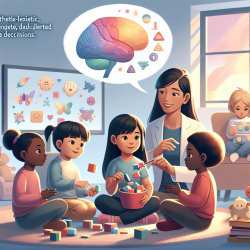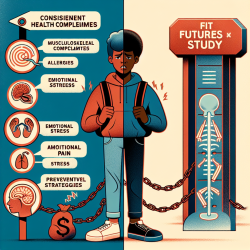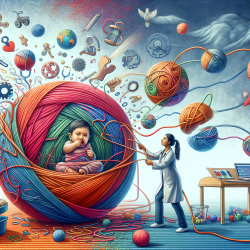Introduction
The integration of online therapy into educational settings has been a transformative step in providing accessible care to children. As we continue to expand our understanding of how best to support diverse populations, insights from the 36th Annual CAPO Conference highlight the importance of equity, diversity, and inclusion (EDI) in psychosocial oncology. This blog explores the implications of these findings for practitioners, particularly in the context of online therapy services like those provided by TinyEYE.
Understanding the Research
The 36th Annual CAPO Conference brought together a diverse group of stakeholders to discuss the intersections of equity, diversity, and inclusion in cancer care. Key themes included the implementation of patient-reported outcomes (PROs) and caregiver-reported outcomes (CROs), the role of digital health, and the importance of culturally sensitive interventions. These discussions provide valuable insights into how we can improve online therapy services for children by addressing EDI issues.
Implementing Patient-Reported Outcomes
One of the significant findings from the conference was the effectiveness of PROs in enhancing patient-clinician communication and improving symptom management. For online therapy practitioners, this underscores the importance of integrating systematic and standardized screening tools into therapy sessions. By doing so, therapists can better tailor interventions to meet the unique needs of each child, thereby improving outcomes.
Addressing Equity, Diversity, and Inclusion
Equity, diversity, and inclusion are critical components in delivering effective psychosocial care. The conference highlighted the need for culturally sensitive interventions that consider the diverse backgrounds of patients. Online therapy platforms can implement these insights by offering training for therapists on cultural competence and by developing resources that are inclusive of various cultural perspectives.
The Role of Digital Health
Digital health was another focus of the conference, with discussions on how technology can be leveraged to improve care delivery. For online therapy services, this means utilizing digital tools to enhance engagement and provide real-time feedback to both children and their caregivers. By incorporating advanced digital solutions, therapists can create a more interactive and supportive environment for children.
Encouraging Further Research
While the conference provided valuable insights, it also highlighted the need for ongoing research to further understand the complexities of psychosocial care in diverse populations. Practitioners are encouraged to engage in continuous learning and contribute to research efforts that explore innovative approaches to online therapy.
Conclusion
The findings from the 36th Annual CAPO Conference offer a roadmap for enhancing online therapy services through a focus on equity, diversity, and inclusion. By integrating these insights into practice, therapists can better support children in achieving positive outcomes. To read the original research paper, please follow this link: 36th Annual CAPO Conference: Advocating for All: Psychosocial Oncology at the Intersections of Equity, Diversity, and Inclusion, 8–10 June 2021.










